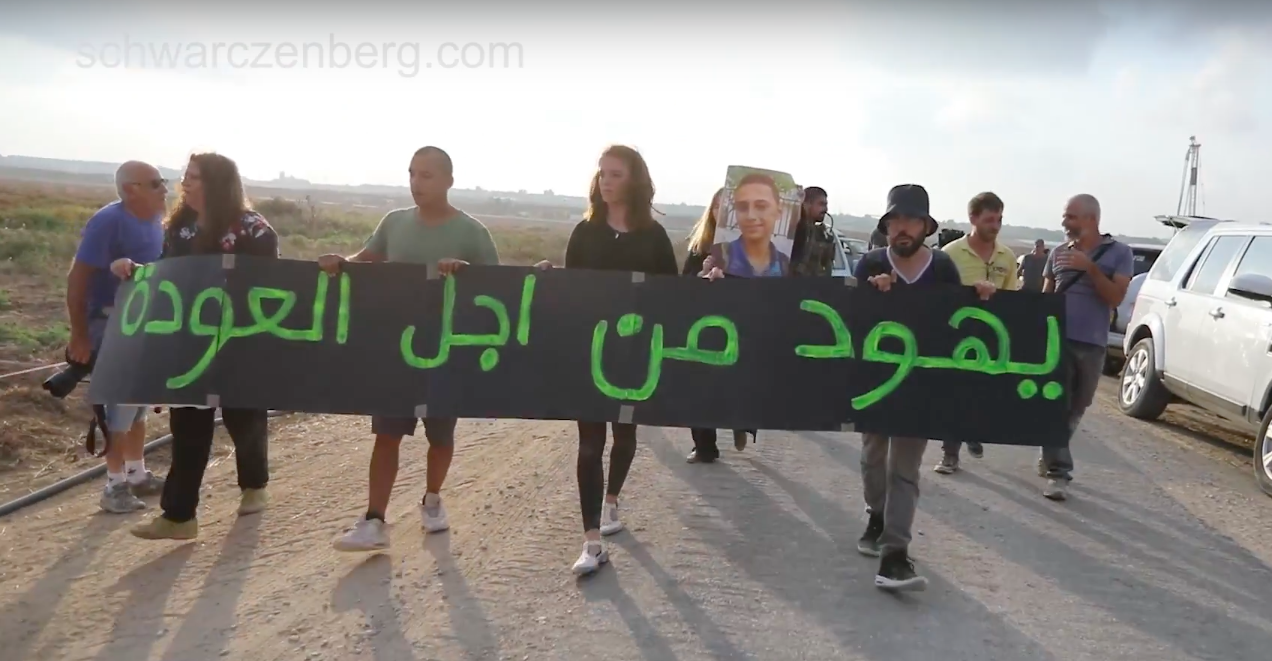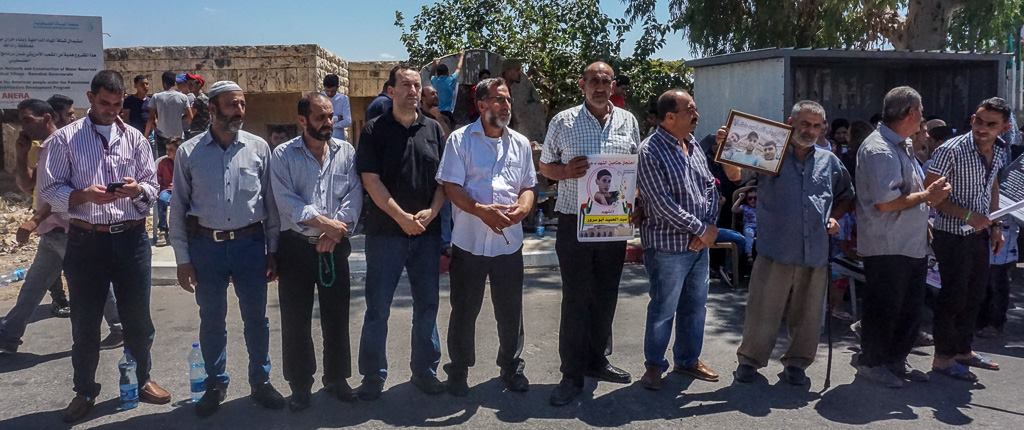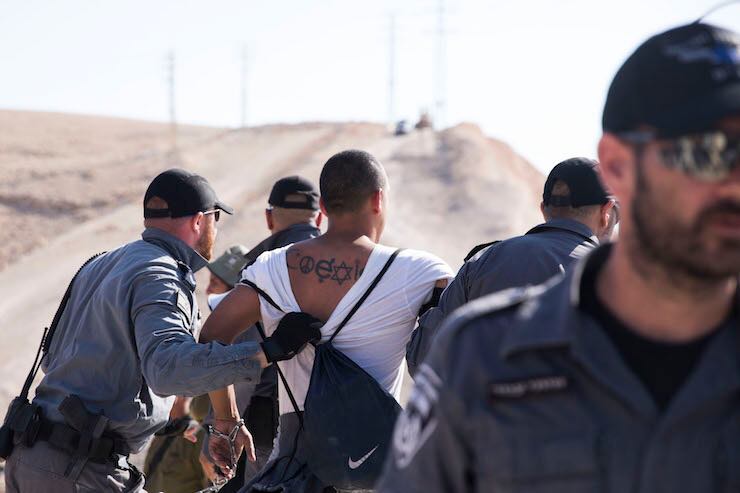Category: Features
-
Video: Activists stand in solidarity with Gaza, are arrested by Israeli military and police
3rd August 2018 | Close to the Gaza fence Israeli and international protesters demonstrated at Gaza fence in solidarity with The Great Return March On Friday August 3rd, “Return”, a group of Israeli and international anti-Zionist activists, including activists from the International Solidarity movement, protested on the east side of the Gaza fence in solidarity with…
-
Palestinians demonstrate for Israel to return the dead bodies of their sons, husbands and fathers
27th July | International Solidarity Movement, Ramallah Team | Deir Abu Mash’al Palestinians demonstrate for Israel to return the dead bodies of their sons, husbands and fathers Some 300 Palestinans from the West Bank (including occupied East-Jerusalem) gathered today in Deir Abu Mash’al to protest Israels practice of withholding the bodies of dead…
-
Experiencing arrest in Khan al-Ahmar, threatened by demolition by Israeli forces
26th July 2018 | Steve Dhiman, International Solidarity Movement | Khan al-Ahmar, occupied Palestine An ISM volunteer describes his experience of being arrested and almost deported by Israeli forces On Wednesday, the 4th of July, I began training with the International Solidarity Movement, an organization where Palestinians and Israelis, Jewish people and Muslims work…



